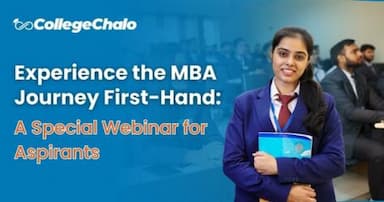IIT Madras’ 61st Convocation witnesses graduation of 2,636 Students
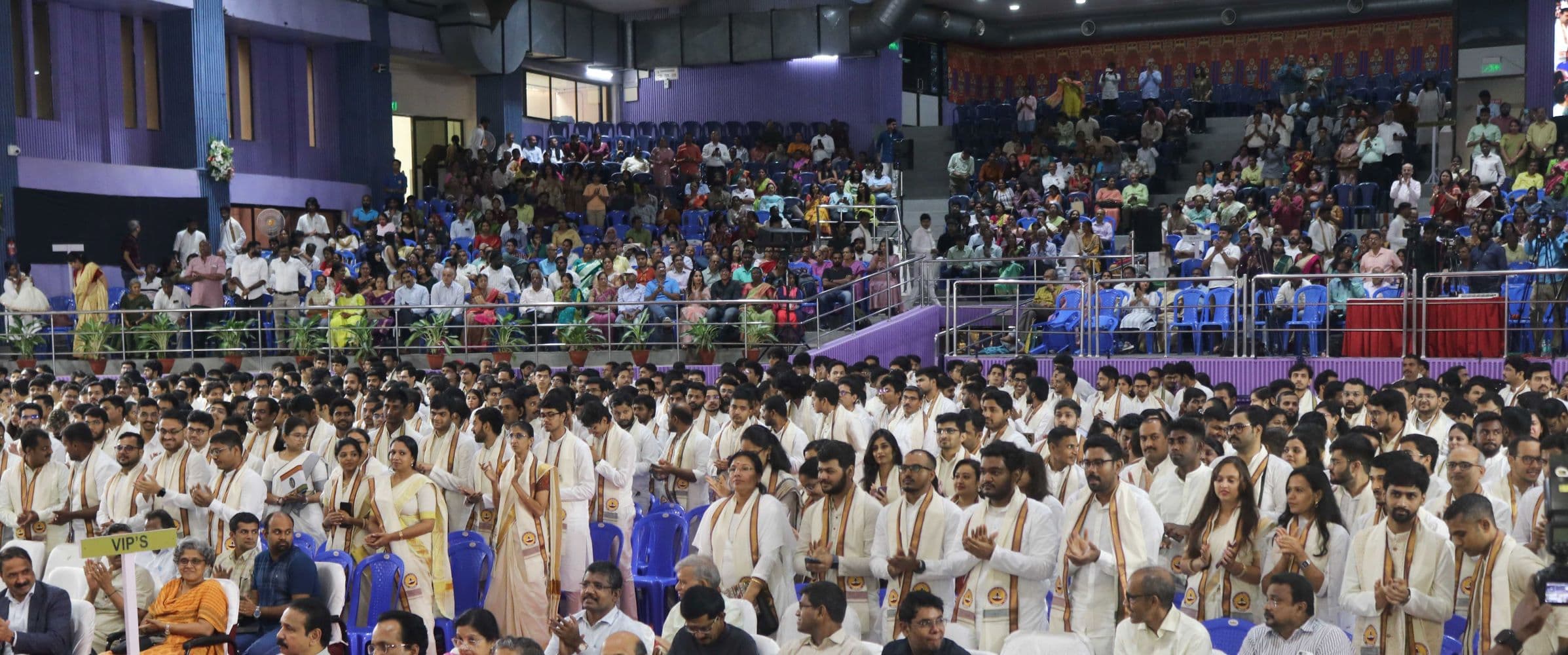
IIT Madras conducted its 61st convocation where over 3016 degrees were awarded.
The event was an impressive affair with S Somnath, Chairman, ISRO receiving his doctorate degree in Mechanical Engineering.

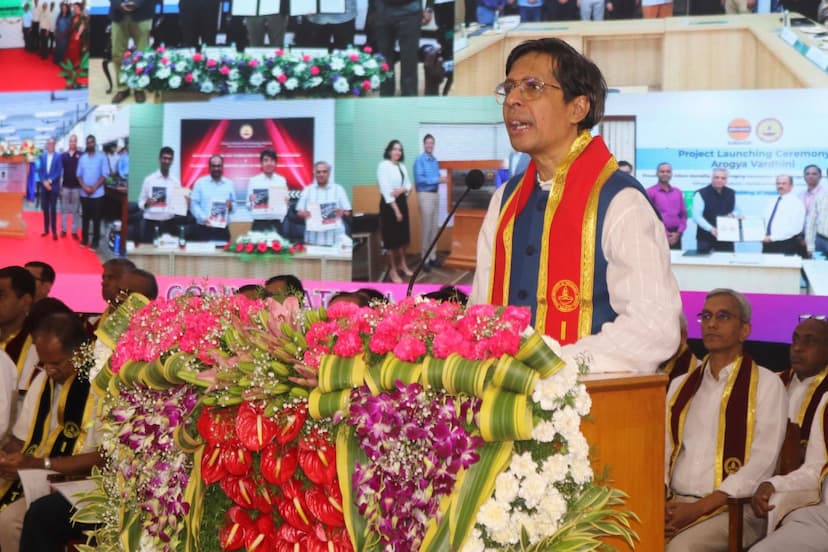
Milestones
IIT Madras had an eventful year, with many major milestones, the top three being the establishments of Wadhwani School of Data Science & AI and School of Interdisciplinary Studies besides the launch of Agnibaan rocket.
The Department of Data Science and AI housed in the Wadhwani School of Data Science and AI, which was generously funded by IIT Madras Distinguished alumnus Mr. Sunil Wadhwani, will work on impactful problems of direct relevance to the society.
Highlight
The International Interdisciplinary Master’s degree programs (I2MP) with innovative curricula to equip students with cutting-edge expertise and skills that transcend traditional engineering domains was launched in 2022.

The first batch of I2MP is graduating at this Convocation, say sources from IIT Madras. The I2MP receives over 200 applications annually from diverse backgrounds and countries, including Ethiopia, Mauritius, Syria, and Nepal.
These students study several core and elective courses at IIT Madras, in addition to a research project in their area of interest.
Chief Guest
The Chief Guest was Dr. Brian K. Kobilka, who was awarded the Nobel Prize in Chemistry 2012. Dr. Pawan Goenka, Chairman, Board of Governors, IIT Madras, presided over the Convocation in the presence of Prof. V. Kamakoti, Director, IIT Madras, faculty, staff and students.

Dr. Brian K. Kobilka and Robert Lefkowitz discovered that the receptor was similar to receptors located in the eye that capture light.
It was later discovered that there is an entire family of receptors that look and act in similar ways–G-protein-coupled receptors. Approximately half of all medications used today make use of this kind of receptor.

My career today is an example of how an average individual can achieve a measure of success by a combination of factors including hard work, persistence, an element of luck and a great deal of help from family, friends and colleagues.

When I look back at my career, I am amazed by how often I was in the right place at the right time, with the right people, said the chief guest at IIT Madras convocation.
He further said I believe that there are five factors that played an important role in my career. First, I found my passion. Something I loved to do.
‘A challenging goal that I wanted to pursue. Second, I was able to find role models and mentors who provided guidance at different stages of my career.’
Third, I recognized my strengths and weaknesses and found ways to leverage my strength and accommodate for my weaknesses. Fourth, I had balance in my life.
A fulfilling family life outside of my academic career. Finally and fifth, possibly the most important, I was not afraid to fail. I found ways to learn from my failures, said the chief guest at IIT Madras convocation.
‘A major goal when I began my independent career in 1990 was to obtain structures of the structures of G-protein-coupled receptors in active/inactive states.’
It took 21 years to achieve goal and ultimately led to my being awarded the Nobel Prize, he said at IIT Madras convocation.
During those 21 years, I learned many things about how these receptors work from my many failed experiments,” said Dr. Brian K. Kobilka.
Degree break-up
During this Convocation, Prof. V. Kamakoti, Director, IIT Madras, awarded degrees to 2,636 graduates including 764 B.Tech (of whom 27 with Honours).
Also, degrees were awarded to 277 Dual Degree B.Tech and M.Tech, 481 M.Tech, 151 M.Sc, 42 M.A, 50 Executive MBA, 84 MBA, 236 M.S, and 107 Web-enabled MTech for executives.
The above PhD numbers also include 07 joint degrees with universities in foreign countries including Australia, Singapore, France and Germany.
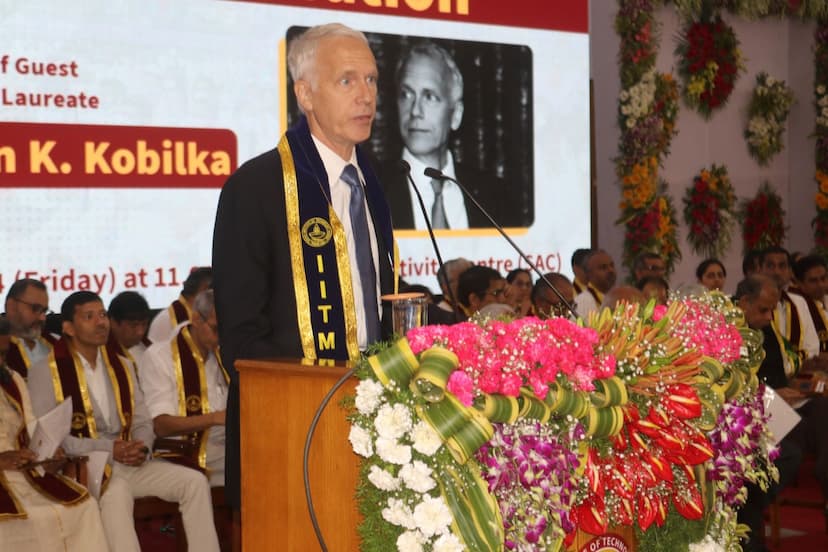
This is leading to a remarkable transformation and is steering us towards becoming a ‘Viksit Bharat’ – a developed India by 2047.
This vision, championed by our Honourable Prime Minister Shri Narendra Modi, reflects a collective national ambition. The Indian economy is advancing rapidly.
‘A decade ago, India ranked as the 10th largest economy globally, today it is 5th, and will soon become 3rd.’
‘India aspires to become a $30 -$35 trillion economy by 2047, on its way to Viksit Bharat, he said during IIT Madras convocation.’
Director of IIT Madras
Prof. V. Kamakoti, Director, IIT Madras presented the director’s report.
This year IIT Madras has exceeded its target of one patent a day by filing 419 patents during the year, of which 85 are international filings, and were granted 445 Indian and 15 international patents.
The IIT Madras Incubation Cell, the nodal incubator of IIT Madras and spearheading country’s leading deep tech startup hub, marked the beginning of 2024 on a jubilant note.
A total portfolio of 365 startups, cumulatively valued at INR 45,000 Crores (US$5.4 Billion, based on investments raised from angels/VCs), he said.
The goal for the fiscal year 2024-25 is to incubate 100 more, focusing on areas such as space, manufacturing, robotics, Assistive Tech, climate-tech, fintech and AI, he said.
In 2023-24, the Institute received sanction for 331 Ministry-sponsored projects for a total value of Rs 568.21 crores.
Our strong industry collaboration is evident from the 883 consultancy and industry-sponsored research projects received this financial year amounting to Rs 584.87 crores.
The above is inclusive of around 130 international projects funded by foreign entities, said IIT Madras director.
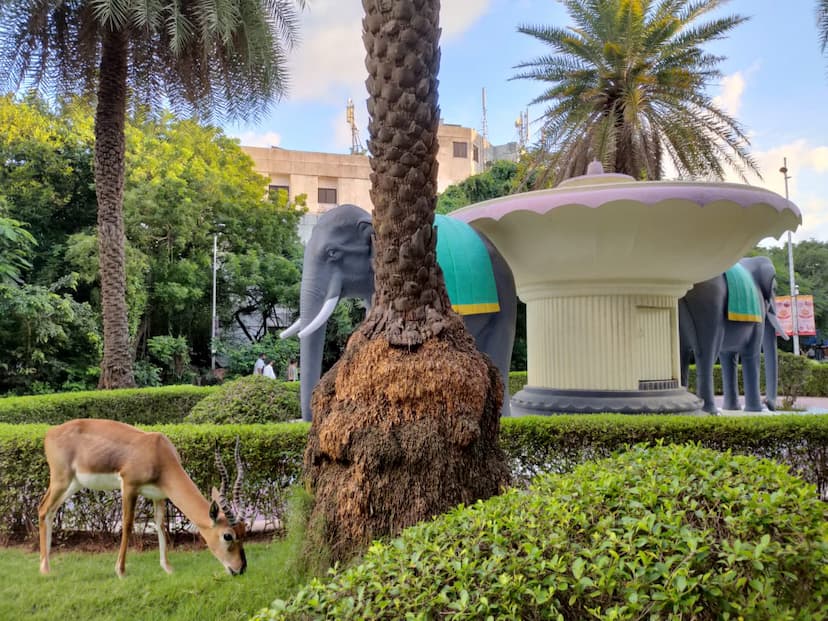
S Vishnu Sharmaa now works with collegechalo.com in the news team. His work involves writing articles related to the education sector in India with a keen focus on higher education issues. Journalism has always been a passion for him. He has more than 10 years of enriching experience with various media organizations like Eenadu, Webdunia, News Today, Infodea. He also has a strong interest in writing about defence and railway related issues.



